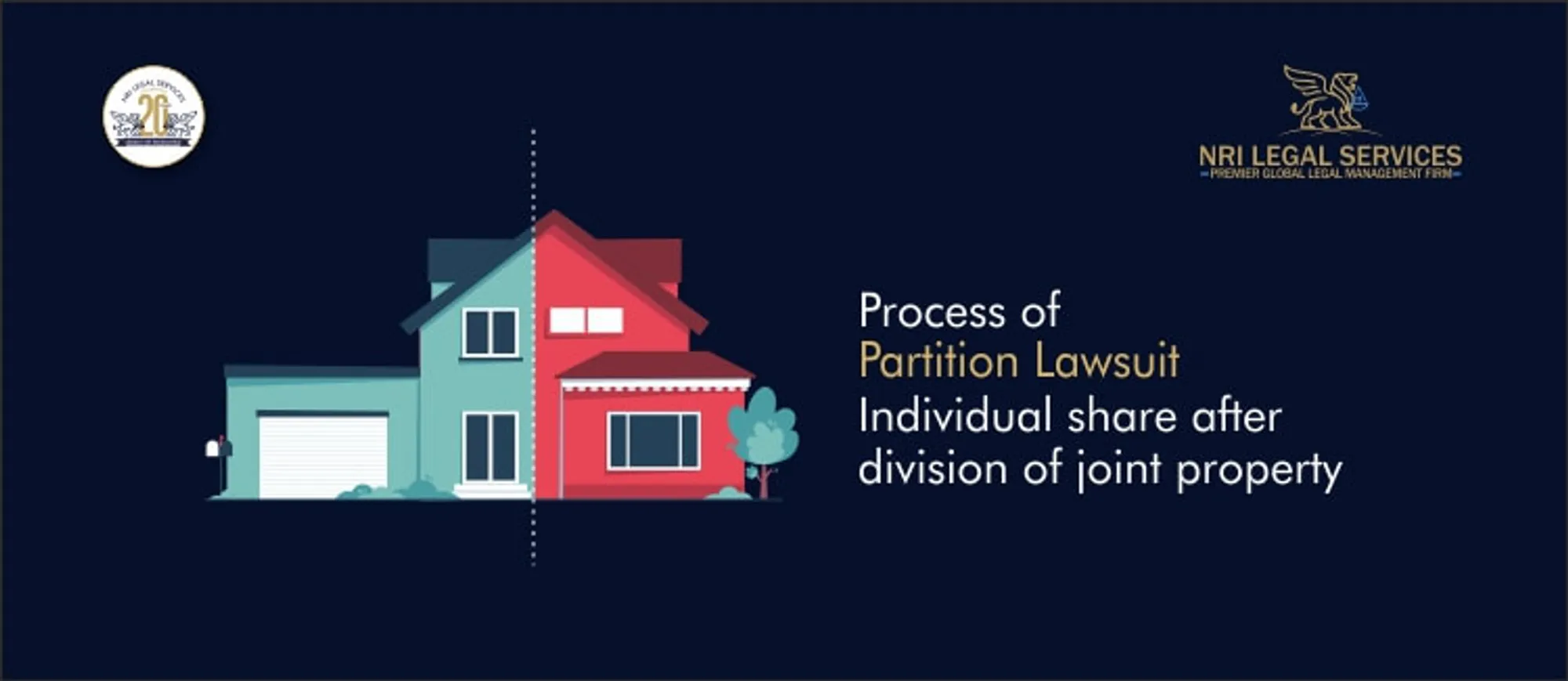Several persons may jointly own a property. In a joint family, all family members have share in the joint property unless barred by law. Partition means the division of joint property among co-owners so that each gets a separate share. Division of Joint property can be among all the co-owners either amicably with mutual consent or through the court. When we move the court and file a plaint for joint property distribution, it is called a partition lawsuit.
Partition may become necessary when it becomes difficult for co-owners to agree about joint properties or joint businesses mutually.
Partition is a redistribution of rights of joint owners in the joint property. When all the co-owners get a separate share after the division of joint property, it is partition. But if some co-owners remain joint and only a few get their share separated, it is a separation of share and not partition.
NRIs can seek the help of property lawyers or property management companies to file the partition suit. NRIs must be aware of the existence of their joint property in India.
Partition lawsuit is a case filed in the court for the division of joint property. The property can be divided according to:
- Will
- Family settlement/Partition deed
- The law of inheritance/succession
In India, we have The Hindu Succession Act, 1956, The Partition Act 1893, Transfer of Property Act 1882; all of these govern the partition of property.
There is a limitation period for filing the partition suit. It is filed within 12 years from the start of the adverse claim, i.e., from the date when someone denies your claim.
Process of Partition Lawsuit:
A partition lawsuit is filed when a co-owner wants his separate share. Before initiating legal action in court, a co-owner sends a legal notice through a property lawyer to the other co-owner informing him about his intention to get the joint property partitioned. It is not mandatory to send this notice. An oral demand and denial of the same is sufficient.
Recommended reading: Inheritance rights of women in India
Filing the plaint: A plaint containing the case’s facts, including the property details, is filed in the court. A property lawyer helps to draft the plaint and incorporate all necessary information and law points. The location/area of the property decides the jurisdiction of the court. The petition for partition can be filed by
- Any co-owner or all the co-owners
- Any legal heir or all legal heirs. All the legal heirs may or may not sign the plaint.
A person filing the petition should possess the title deed/document supporting his claim. The property must be clearly described in the petition with boundaries and directions. It is better if the map of the area/location of the property is available.
Depositing court fees: Appropriate court fees for the particular case as per the rates applicable is paid in the court while filing the plaint. The court fee can be fixed (if parties are in joint possession) or as per market rate (if parties are not in joint possession).
Recommended reading: Property owner search steps
Hearing of the case: The court first hears the plaintiff (person who files the lawsuit). If the court finds some merits in the facts, a notice is issued to the opposite party. Otherwise, the plaint is dismissed at this initial stage.
Reply to the claim: Opportunity is given to the opposite party to file its response to the claim of the plaintiff.
Evidence: Both the parties lead evidence. The plaintiff places on record the document based on which he is claiming his share. It can be any document supporting the claim, like transaction deed, Will, share certificate, utility bills, tax records, revenue records, etc. The document must be legally valid.
Final Order: The court decides the matter as per the facts and the evidence placed before it. It may order for:
- Partition in kind, i.e., physical separation of properties. It requires inspection, measurement, and property valuation, which is done under the supervision or direction of the court. Either different properties are separately allocated to all co-owners, or boundaries of a single property are demarcated.
- One may get the land/house, and others may obtain monetary compensation equivalent to their share.
- Sale of property and distribution of sale proceeds.
Recommended reading: Procedure to gift a property to your relative in India
After the order of the court, the joint nature of the property comes to an end and the division of joint property is processed.
It is always recommended to hire civil suit lawyers when partition takes place so that all the co-owners get a separate share after the division of joint property among all the members.

